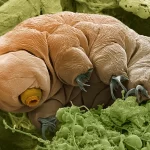
Transmission of Alzheimer’s Disease: Evidence from Long-Term Follow-up of Human Growth Hormone Recipients
February 6, 2024 Off By adminA recent article in Nature Medicine reports groundbreaking evidence suggesting that Alzheimer’s disease (AD) can be transmitted from person to person, based on the long-term follow-up of patients who received human growth hormone (hGH) derived from brain tissue of deceased donors. The study unveils a potential environmental route for acquiring AD, alongside its sporadic and inherited forms, and raises implications for revisiting preventive measures to avoid accidental transmissions through medical and surgical procedures.
Key Findings and Context:
- Iatrogenic Transmission of AD: The study focuses on patients who received hGH derived from cadaveric pituitary glands, a practice that took place until 1985. The recipients of cadaver-derived hGH were exposed to potential contamination with amyloid-beta (Aβ) seeds, abnormal proteins associated with AD.
- Parallel with Creutzfeldt–Jakob Disease (CJD): The transmission of AD mirrors the previously reported iatrogenic transmission of Creutzfeldt–Jakob disease (CJD) in patients who received the same contaminated hGH preparations. Both AD and CJD involve abnormal protein aggregates—Aβ in AD and prions in CJD.
- Five Cases of Early-Onset Alzheimer’s: The study identifies five recipients of cadaver-derived hGH who developed early-onset Alzheimer’s disease. This provides the first evidence of human-to-human transmission of AD.
- Similarities with Prion Diseases: The study suggests that propagating Aβ assemblies may exhibit structural diversity akin to conventional prions, leading to the possibility of therapeutic strategies targeting disease-related assemblies.
- Implications for Preventive Measures: While iatrogenic transmission of AD is considered rare, the findings prompt a reevaluation of preventive measures to mitigate the risk of accidental transmissions through medical and surgical procedures.
- Long Lag Time: Given the lengthy period between exposure to contaminated hGH and the development of clinical AD, the study highlights the importance of recognizing this potential risk even decades after exposure.
- Need for Further Research: The study contributes to the understanding of AD’s environmental forms and emphasizes the importance of ongoing research to explore dynamics, therapeutic implications, and preventive strategies.
Conclusion:
The Nature Medicine article presents a paradigm-shifting perspective on the transmission of Alzheimer’s disease, shedding light on iatrogenic forms alongside sporadic and inherited cases. The study underscores the need for continued investigation into the environmental factors influencing AD and provides valuable insights for future research, diagnostic approaches, and preventive measures.
More information: Gargi Banerjee et al, Iatrogenic Alzheimer’s disease in recipients of cadaveric pituitary-derived growth hormone, Nature Medicine (2024). DOI: 10.1038/s41591-023-02729-2
Table of Contents
ToggleRelated posts:
![blockchain in bioinformatics]()
The Future of Blockchain for Data Security: A 2043 Vision
Data Science![CRISPR-COVID-19]()
HIV Gene Editing: EBT-001 Clears SIV in Non-Human Primates, Paving the Way for Clinical Trials
news![obsessive_compulsive_disorder]()
Gene discovery could pave the way for more effective obsessive-compulsive disorder (OCD) treatments.
news![bacteria]()
Beyond Traditional Targets: Harnessing Natural Antimicrobials from Bacteria
news![Diffusion Models in Science and Biology]()
Trending topics in AI news
A.I![bioinformatics-DNA, protein]()
The Microsecond Timescale Dynamics of HIV-1 Envelope Glycoprotein and Implications for Vaccine Desig...
news![Artificial_Intelligence__AI__Machine_Learning_-_Deeplearning]()
New Machine Learning Approach Enhances Predictions of CRISPR Technologies Efficacy
news![Personal genomics]()
World’s Largest Human Genome Database Unveils Complete Sequences for 500,000 Participants
news![Gene analysis tools and software]()
A Comprehensive Look at the Persistent and Debilitating Symptoms of Long COVID Through Cutting-Edge ...
bioinformatics![Researchers unlock the chronic kidney disease 'treasure map']()
Researchers unlock the chronic kidney disease 'treasure map'
news![bioinformatics-DNA, protein]()
Could CRISPR cure HIV someday?
news![tardigrade]()
Decoding Tardigrade Superpowers: Ancient Transition Revealed in Evolutionary Tale of Resilience
news![IBM_Q]()
IBM Breaks Ground with Release of 1,000-Qubit Quantum Chip and Revolutionary Error Correction Strate...
news![cancervaccine]()
Russian mRNA Cancer Vaccine: A Breakthrough in Immunotherapy
news![quantumcomputer-operation]()
The world's first commercial quantum computer has begun operating in Japan.
news![A.I battle - Chatgpt, bard, claude, perplexity, Pi]()
Claude 3.5 Haiku: Anthropic's New AI Model
news

















